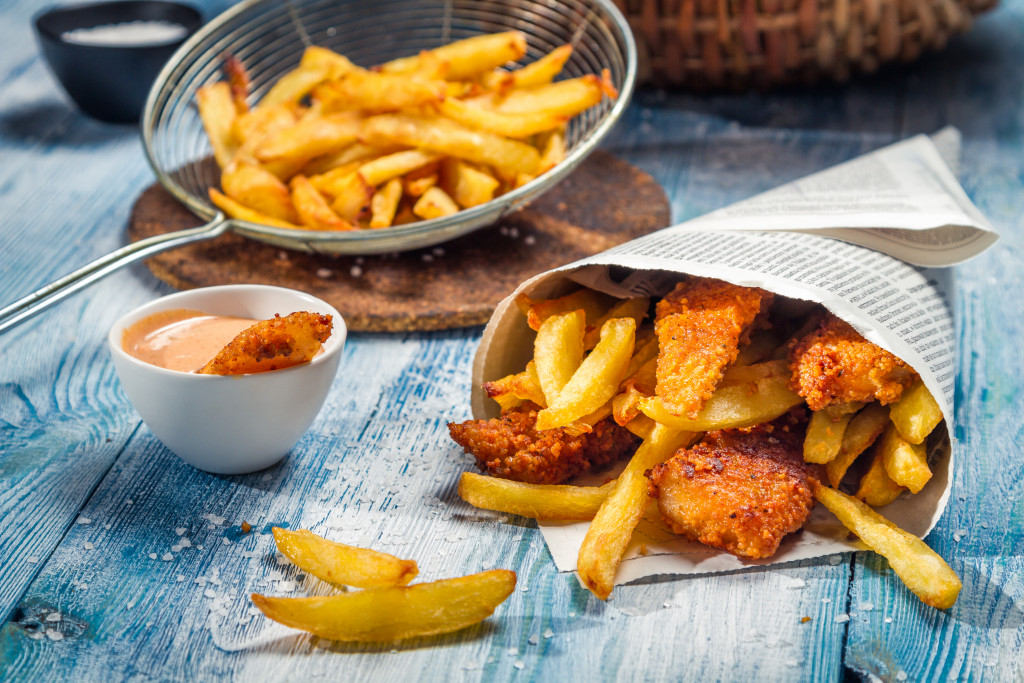Every food you eat plays a significant role in your body functions, especially your brainpower. That is to say, nutritious food can help improve your memory, lift your mood, and prevent diseases that affect your brain.
Brain boosters from healthy food can help you prevent neurodegenerative diseases in the long run like Parkinson’s and Alzheimer’s. Food and drink high in purines, a natural substance found in food, can increase uric acid—high levels of uric acid cause joint and tissue damage, heart disease, and bone damage. But recent studies show that it also has strong anti-oxidative properties and helps protect against Alzheimer’s and other diseases in the form of gout, a common form of arthritis that affects 8.5 million people in the U.S.
A study published in Writing in the Annals of Rheumatic Diseases from the Boston University and Massachusetts General Hospital found that people with gout had 24% lower risks of Alzheimer’s disease. There also has been previous evidence that uric acid can slow the progression of Parkinson’s disease and provide defense against other neurodegenerative conditions.
But finding this association doesn’t mean that gout should be a solution to Alzheimer’s and Parkinson’s. Gout has more negative effects like swelling, extreme joint pain, and inflammation that leads to kidney stones. If you notice signs of high uric acid levels or experience joint discomfort, you must change your lifestyle and take supplements for gout management.
If you want to maintain your thinking power and protect it against diseases, you should add healthy food to your diet. Here are some brain boosters that do their role for your powerhouse of energy:
Turmeric
There is a particular compound in turmeric called curcumin that has been proven to improve the mood and memory of older adults. Curcumin also improves attention and boosts a gene called brain-derived neurotrophic factor (BDNF) involved in making a protein that increases the growth of brain cells.
This protein helps in learning and memory and is found in some areas responsible for drinking and eating. If you want to add turmeric to your diet but refuse to drink it independently, you can add it to omelets, pork, and chicken. You can even use it as a spice for your lattes and smoothies.
Oily Fish
Oily fishes contain omega-3 fatty acids that build membranes around the cells in the body, including the brain cells hence improving its structure. Researchers from a 2017 study found out that people with a high level of omega-3 had increased blood flow in their brains. Good examples of oily fish rich in omega-3 fatty acids are tuna, herring, sardines, mackerel, and salmon. You can easily include them in your daily diet for a healthy meal.

Caffeine
Good news to coffee lovers! Drinking your cup of coffee in the morning is more than just a wake-up call. Caffeine is a known stimulator of the brain and the central nervous system. It can improve memory, reaction time, mood, the ability to learn, and your overall brain function.
Caffeine can be found in coffee, tea, and dark chocolate, so feel free to switch up your morning drink. Just don’t overdo it, and remember to keep it in moderation since too much caffeine can leave you with side effects, including nausea, anxiety, insomnia, stomach problems, and increased heart rate.
Dark Chocolate
Who says sweet isn’t good for you? Dark chocolate says otherwise. Studies show that consuming it increases cerebral blood flow, helps with memory, and promotes synaptogenesis which is the formation of synapses between neurons in the nervous system. Joy Dubost, a nutrition spokesperson, says research shows that dark chocolate stimulates neural activity in the brain associated with pleasure and reward. It helps boost your mood and also decreases stress!
Dark chocolate also contains a plant chemical called phytonutrients which act as an antioxidant that plays a role in weight loss and cancer prevention. But this doesn’t mean you will indulge yourself with this sweet treat. Choose a bar or a piece with 70% cacao or higher to ensure that you’ll benefit from it. Anything lower than that may have unhealthy fat and a lot of added sugar.
Pumpkin Seeds
Pumpkin seeds are a good source of iron, zinc, copper, and magnesium, which are critical for a healthy brain. Iron is a key nutrient to brain development, zinc is essential for nerve signaling, copper helps control nerve signals, and magnesium prevents nerve cells from being overstimulated and is crucial for memory and learning. It can even relieve stress and anxiety. If you want your brain to have all these nutrients, better switch from oily chips to pumpkin seeds for a very nutritional snack.
Broccoli
Broccoli, aside from being a healthy staple for a good diet and a go-to ingredient for salads and side dishes, can also be a nutritional hero when it comes to your brain. A sulfur-containing compound with antioxidant and anti-inflammatory properties called sulforaphane can be found in broccoli that repairs brain tissue and promotes its growth. It can also be beneficial in the prevention and treatment of brain diseases like Alzheimer’s. Broccoli is a good source of this. Start adding them up on salads, soups, pasta, and sandwiches!
There are many ways to protect your brain naturally—and food is one. By eating food that can boost your brain health, you’re one step ahead to protecting it against diseases and memory loss.